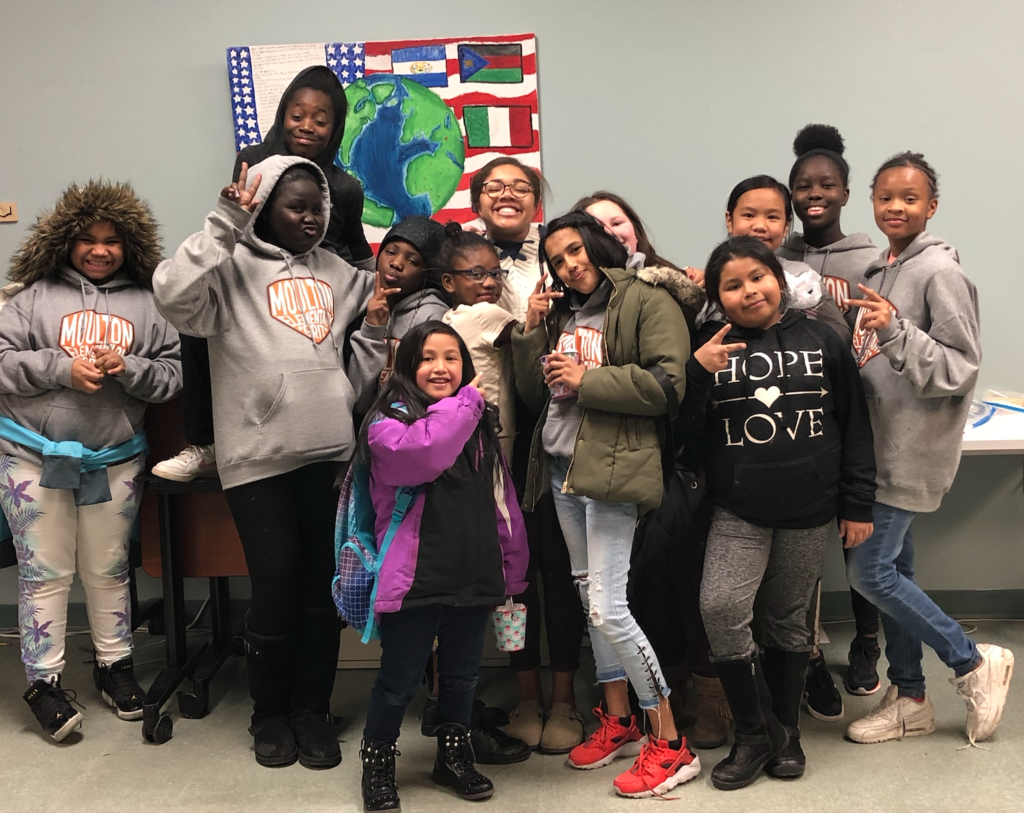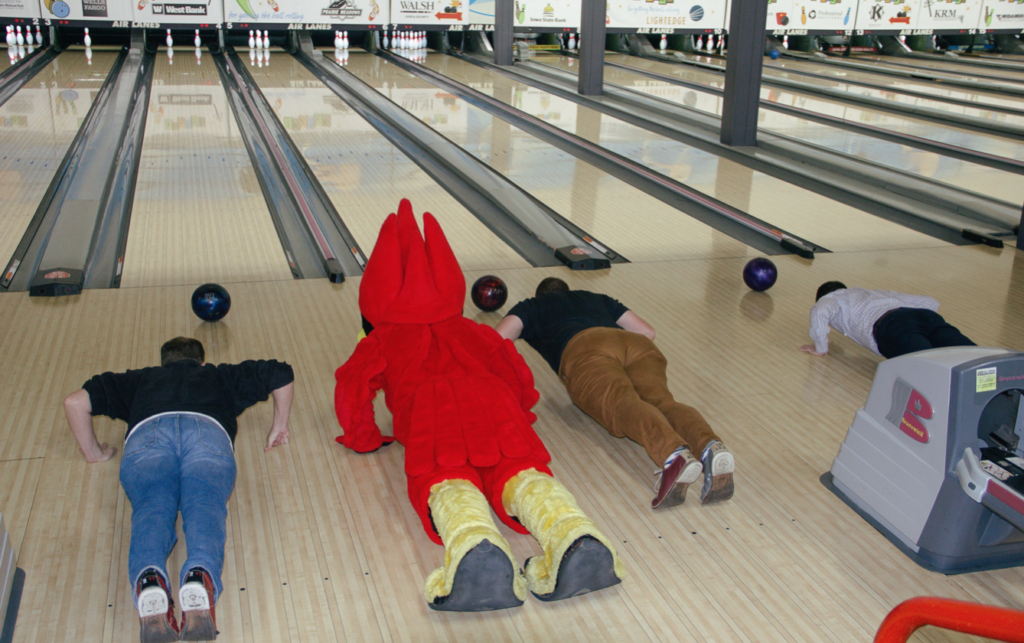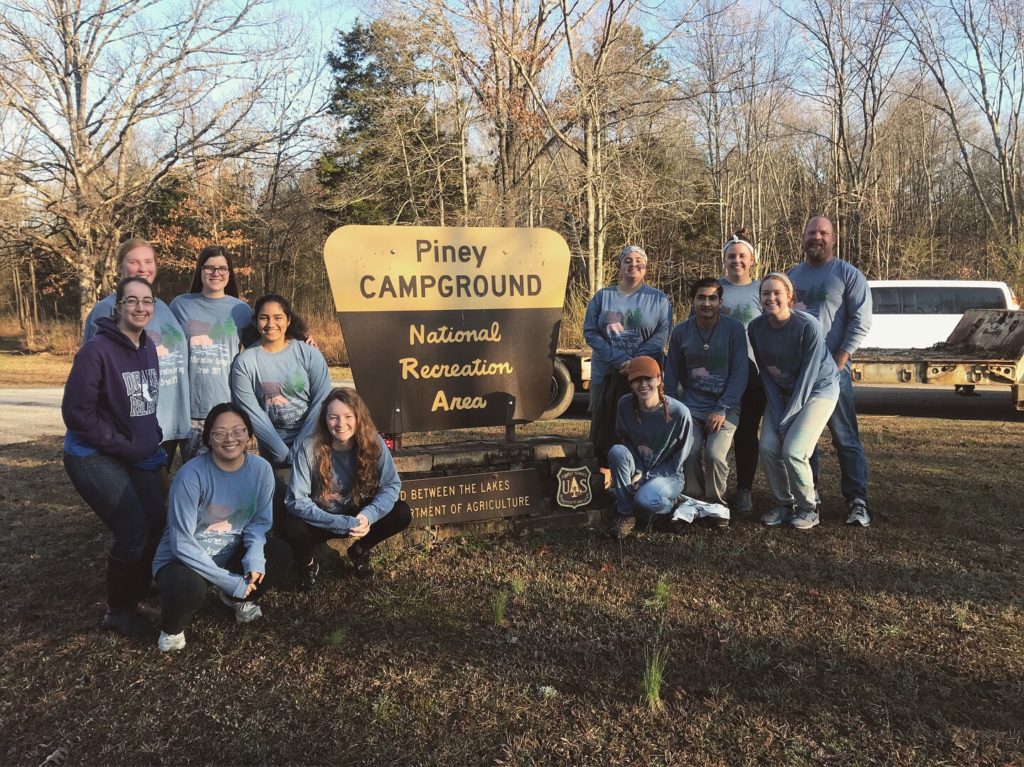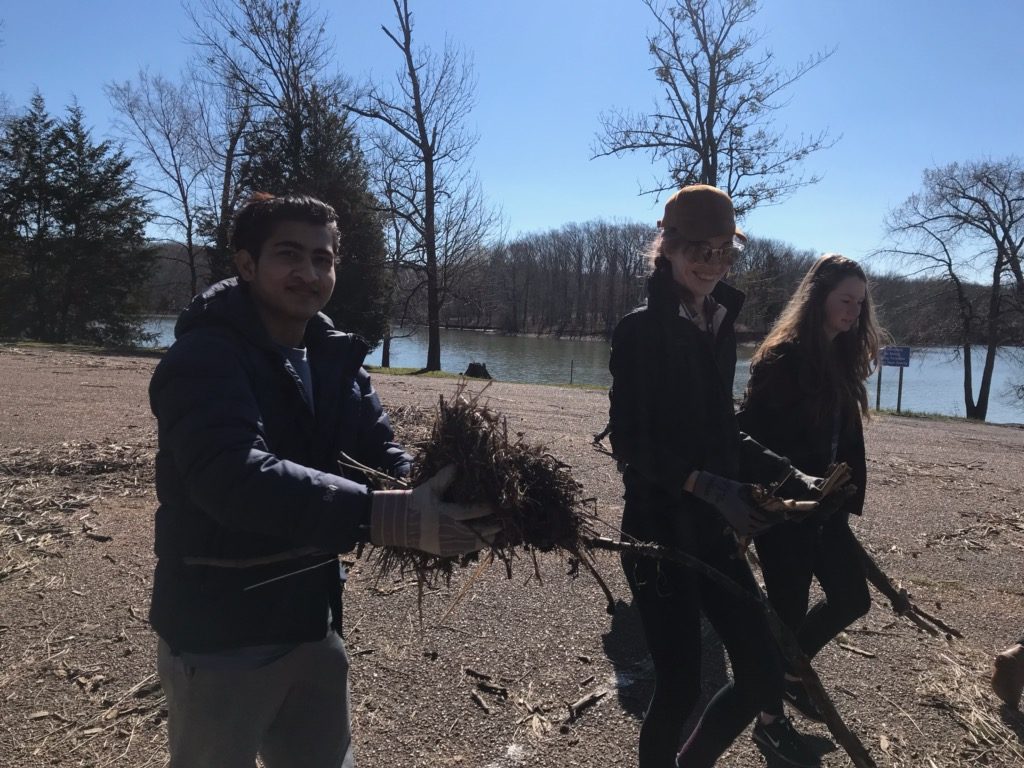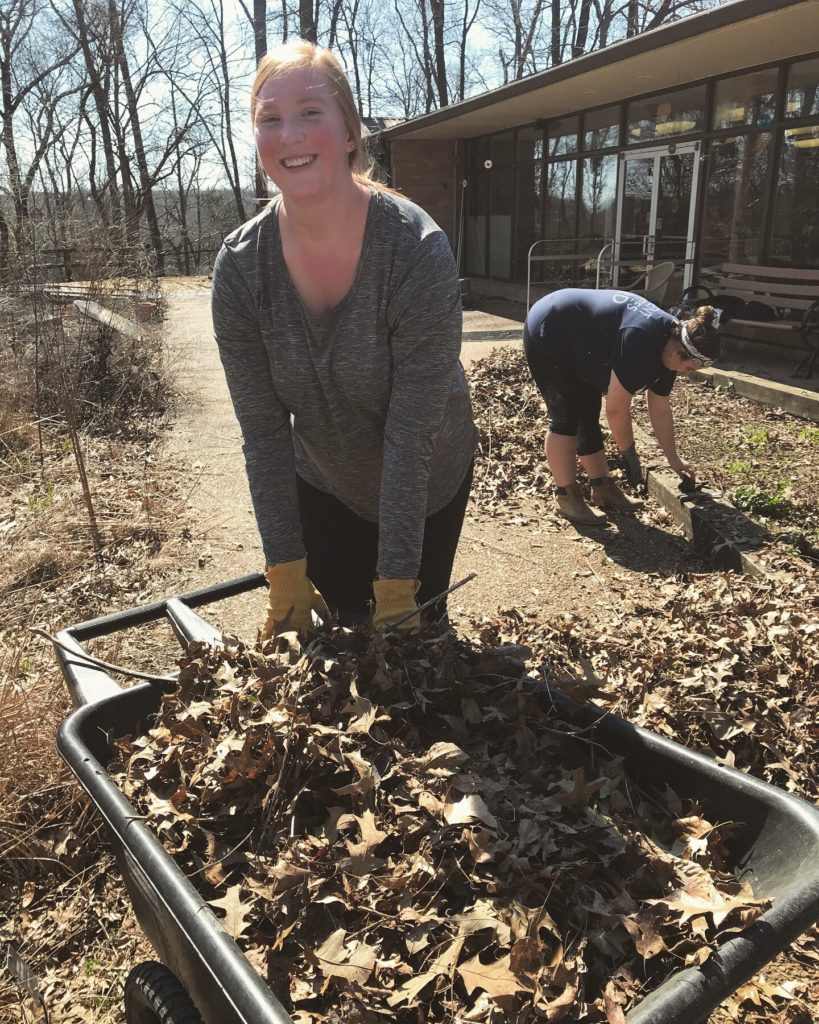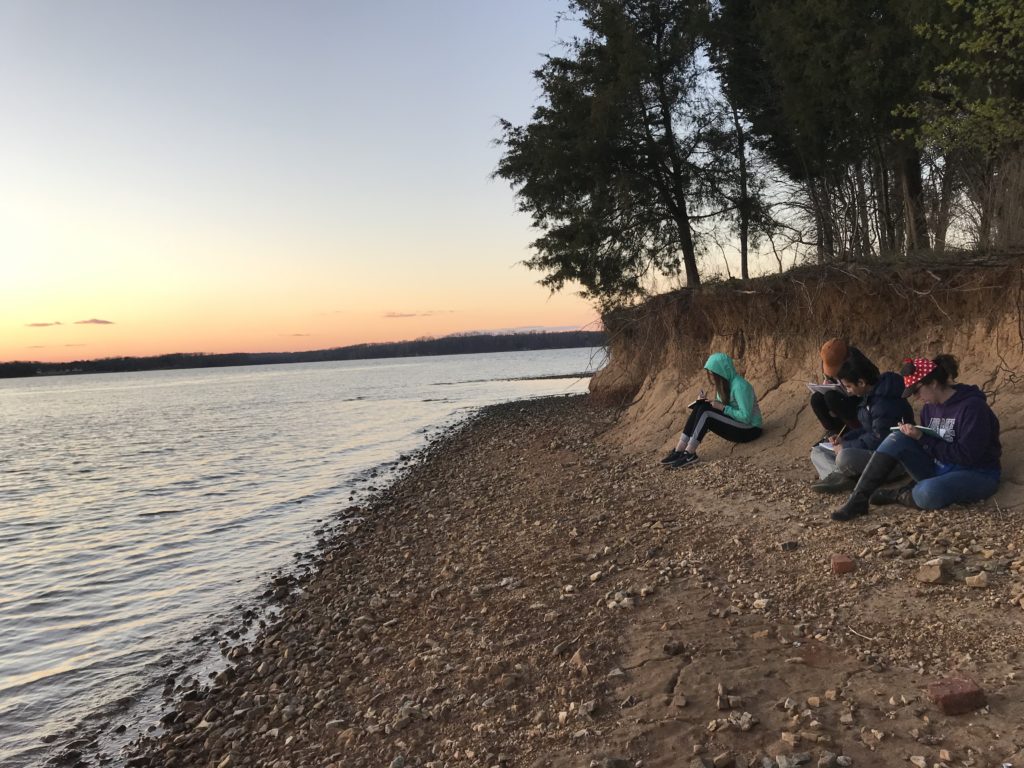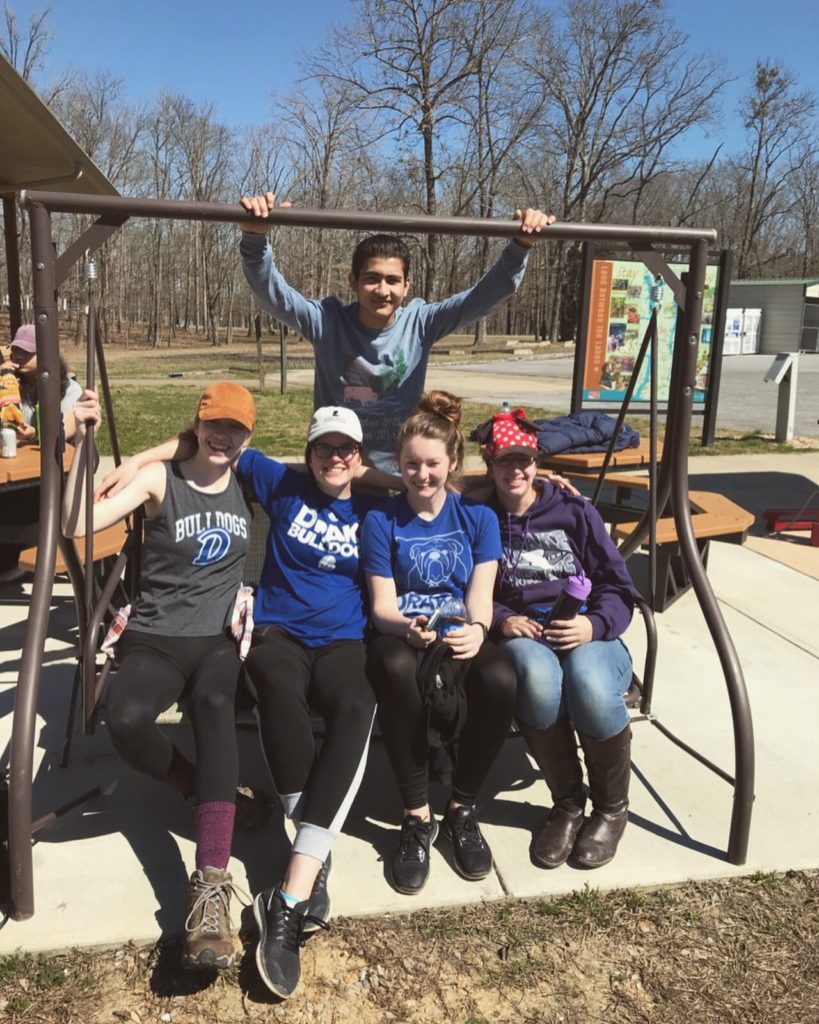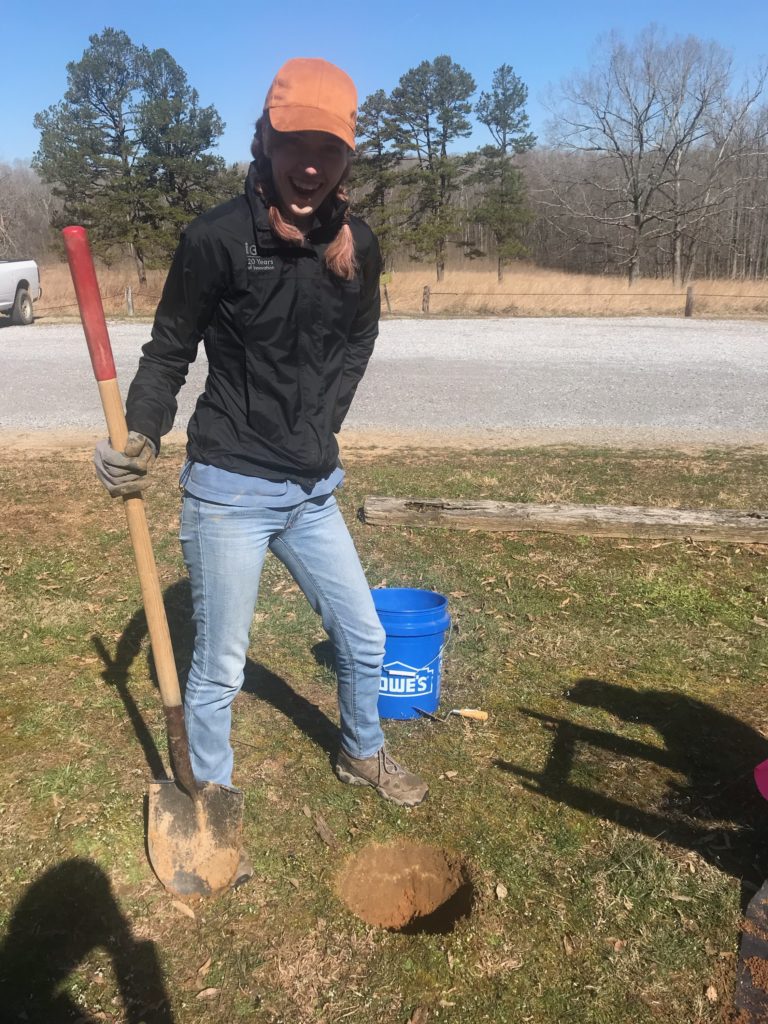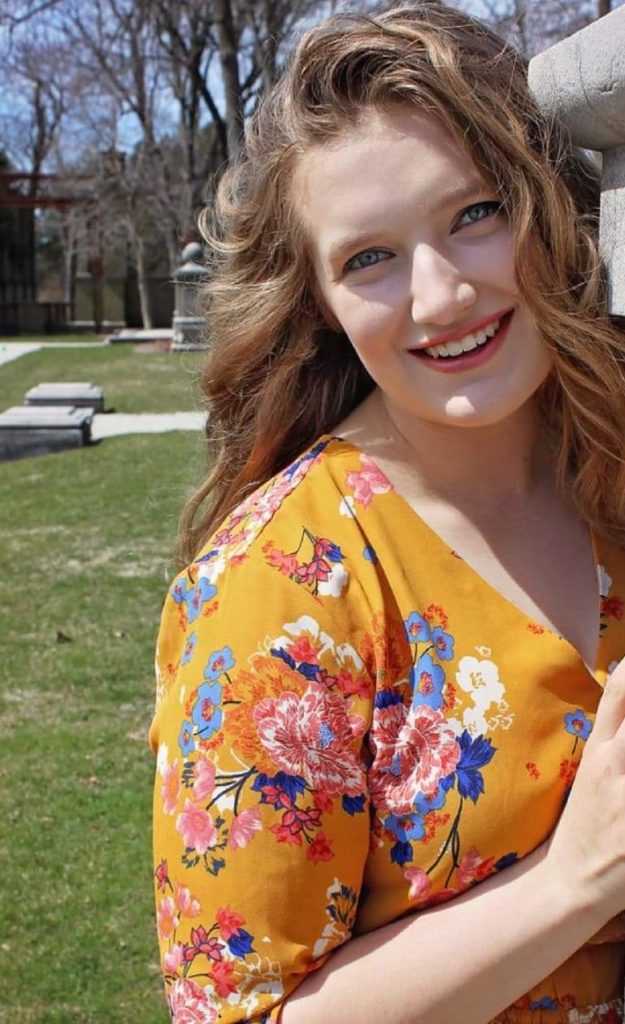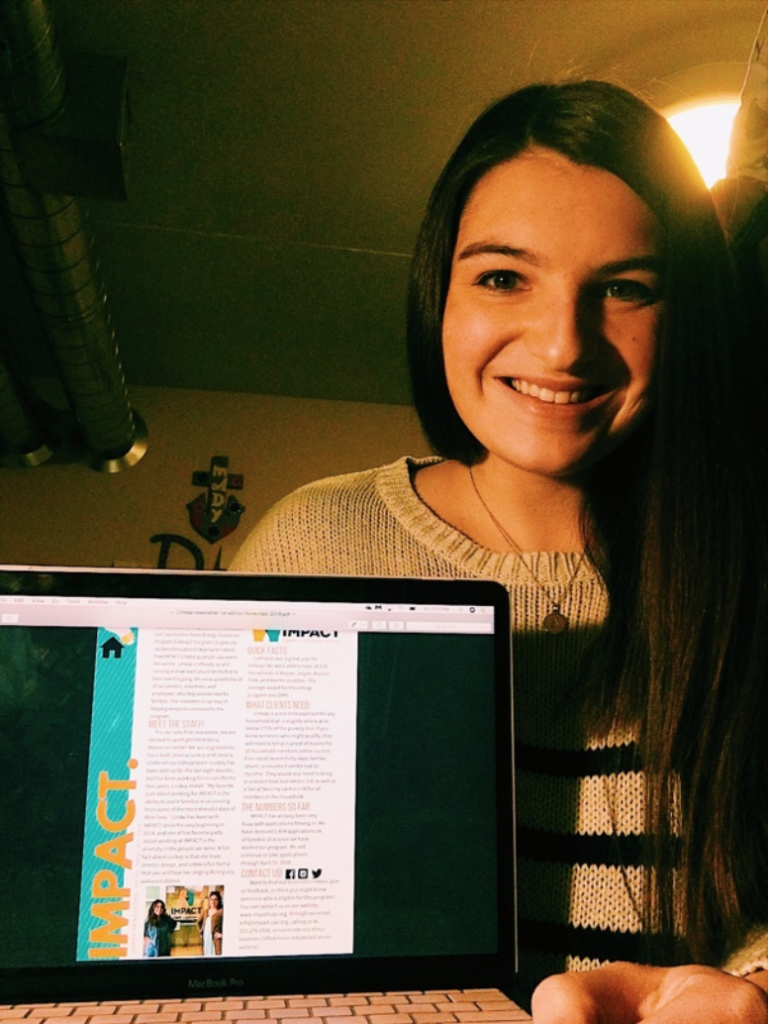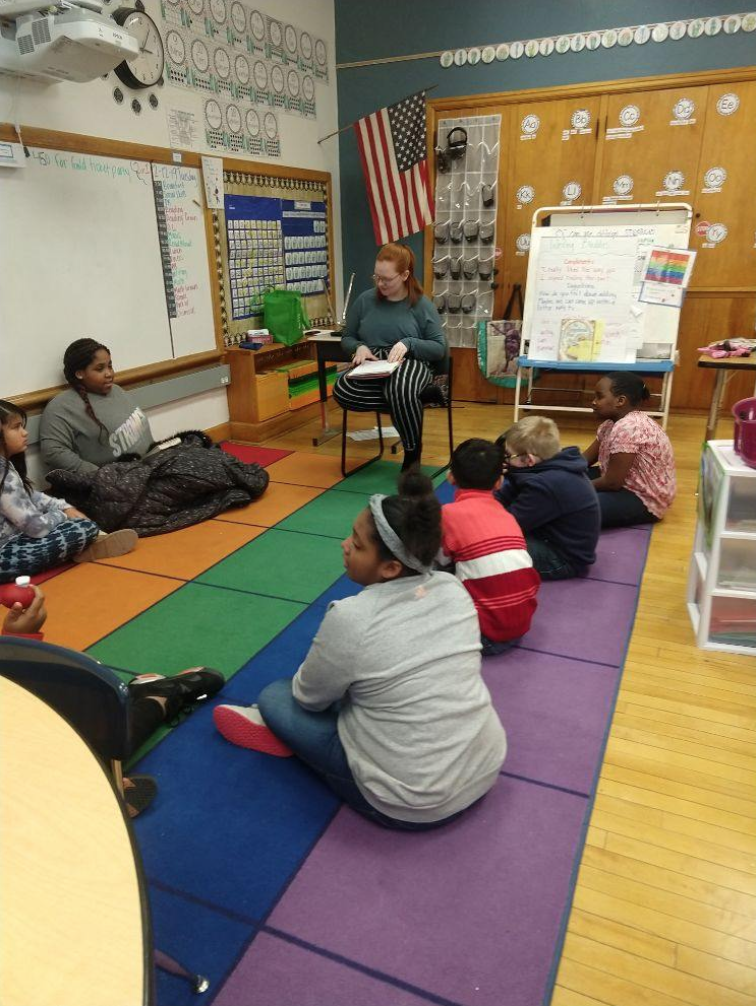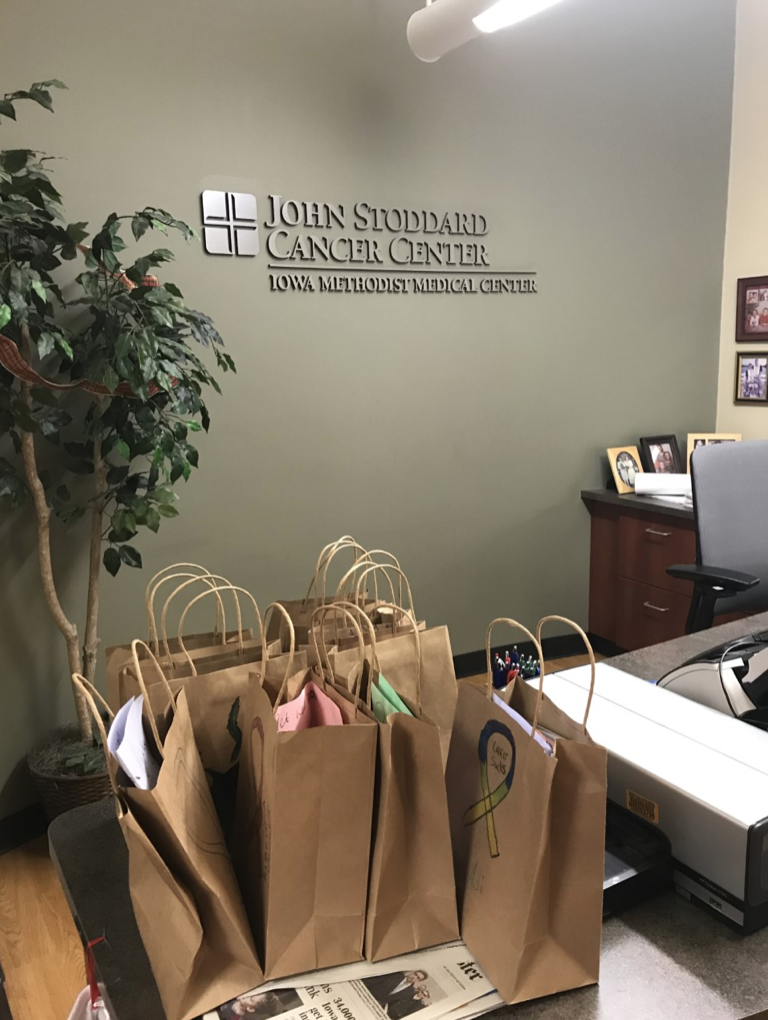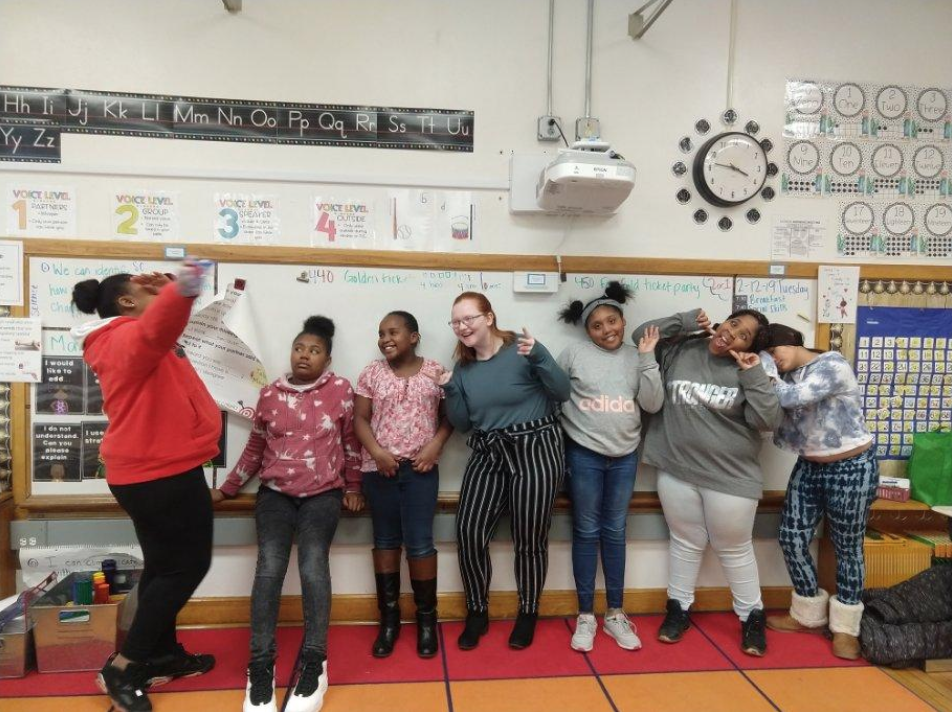Students in PHAR 150’s Global Health Course spent the past year teamed up with the Des Moines Area Religious Council (DMARC) to take part in service learning. The students were divided into three teams. These are their experiences.
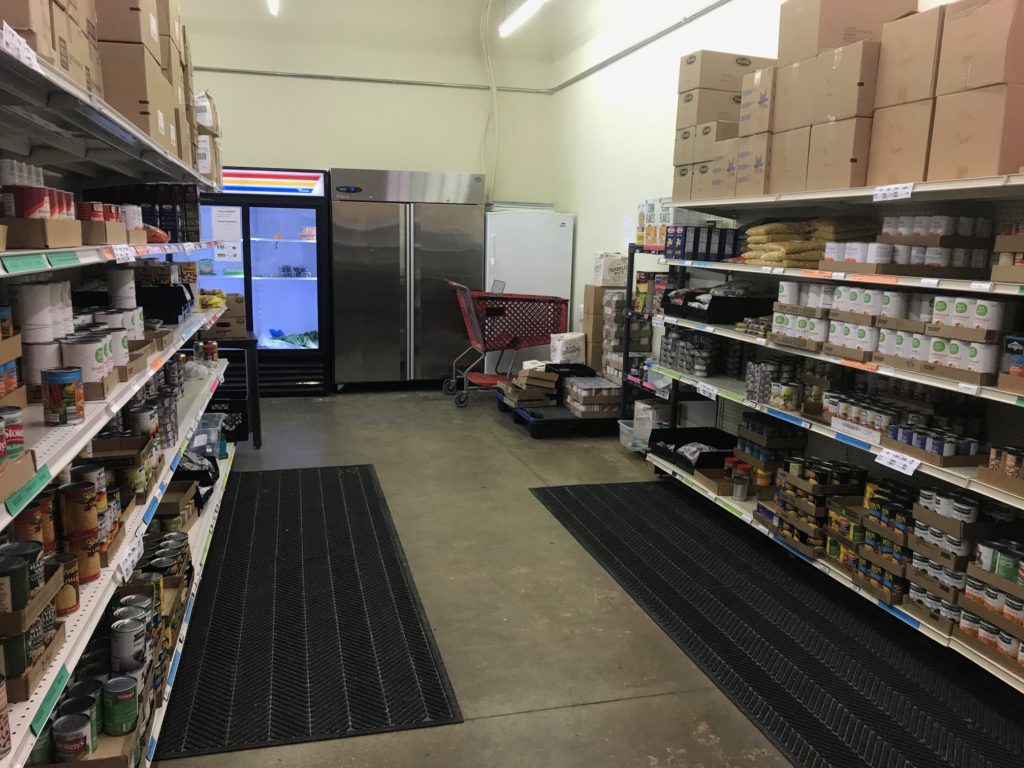
Team 1
Throughout the course of this semester, our class partnered with three different DMARC food pantries. At our site, we helped restock shelves, walked the patrons through the aisles, and administered anonymous surveys to collect data on various social determinants of health and food insecurity. We have learned more about the food pantry and DMARC through interacting with the pantry staff. Analyzing the surveys and conducting a focus group allowed us to assess the population needs. Our focus group was an open discussion where we discussed the patrons’ perceptions of the pantry, use of the pantry and other food banks/kitchens, and other resources they were in need of. The patrons were very willing to share their personal experiences with the group, which resulted in an engaging conversation and mentionedseveral ideas we could bring up to the pantry directors, such as creating a resource contact list for various services such as mental health, health insurance, housing, and employment.
One of the major takeaways from working with the DMARC food pantries is that food insecurity does not impact just minority or underprivileged populations, it impacts nearly every population. The pantry patron population differed based on which site they frequented; at the River Place location, we saw a lot of the older, white, and rural populations, many of which had already retired. Food insecurity is often created to be something that does not impact middle class Americans, or established Americans, removing many people from the issue. However, that was the one of the main populations that we saw in our pantry. Giving someone food does not cure their food insecurity, instead there are so many other needs that people have, many of which they lack the resources to fix. For instance, many people need more food than a once a month pass through the pantry, but they do not know where they can go to get more food, instead implementing budgeting of food stamps and eating high calorie, carb-loaded diets. Our focus group helped establish to us that people are looking for help that they cannot find, mostly because these resources are not accessible to everyone, including free/affordable healthcare, insurance, dental care, and clothing closets. The ability to interact with those that are food insecure humanized and grounded the issue for us, and gave us an invaluable lesson for our futures in health-related fields.
Team 2
Over the course of this semester our team has been working with the local Drake IMPACT food pantry to evaluate their service and the needs of their patrons. Starting in the pantry itself, we got to experience how their system functions while working directly with the pantry clients to assist them in obtaining the food they need. Taking these clients through the pantry, we were able to learn a lot about the various strengths and weaknesses of the food pantry service. One of the largest weaknesses we found was in food quality and the freshness of items present within the pantry. Investigating these observations further, we transitioned into conducting one-on-one interviews with those visiting the pantry using a social determinants of health survey. The results of these surveys will be given to DMARC to continue their work in improving pantry services. Finally, we conducted a focus group with pantry patrons to further investigate issues present within the community that cannot be expressed in a simple survey format. Through open dialogue with 8 of these individuals, we learned a lot about issues present within the Drake community ranging from transportation to program effectiveness to even mental health.
Another component of our experience within this course was working with students from the INSTITUTO TECNOLÓGICO DE MONTERREY in Mexico. Exploring the theme of Global Health, we embarked on a journey of learning with these students as we researched various health issues present in both countries. Both the Drake and Tech groups also provided unique perspectives and data on the issues present within our respective communities. Building toward a collaborative presentation, the chance to work in a cross-cultural setting has been invaluable to our academic experience. As students pursuing careers in global health, understanding colleagues from various backgrounds and cultural settings will be vital to future work. We personally would recommend this course to not only anyone pursuing a career in global health, but to anyone looking to expand their knowledge on global health disparities that face the modern world.
Team 3
In our experience at DMARC, we distributed surveys and conducted a focus group to receive more information about the clients at DMARC pantries, their needs, and their feedback. We had the opportunity to volunteer at the West Des Moines DMARC pantry, which recently began a program to encourage healthier eating. This program works by giving each food item a point value from 1-5, where healthier items are a 1 and less healthy items are a 5. Pantry users are allowed 36 points per visit, so if they choose healthier food items, they get to take more. Throughout our weeks at DMARC, we developed relationships with our pantry director, other volunteers, and clients.
Generally from the responses from the focus group, the clients who are using the West Des Moines pantry are very satisfied with their experience, especially because of the pantry’s dedication to providing fresh and healthy food. The overall lifestyle of the individuals who use the pantry has improved because of the healthy food that they are receiving. Additionally based on the survey responses, participants did not have too many concerns about food insecurity, meaning that they are being taken care of well at the pantry and are receiving adequate food. The largest need that we identified was that individuals need assistance with paying for their utility bills, which is an area of need that the West Des Moines pantry could work to address. Overall, the process of taking surveys and conducting the focus group felt like we were really making a difference to improve the West Des Moines pantry so that they can help their clients have the best experience possible – while giving the clients a voice for their needs to be heard.

